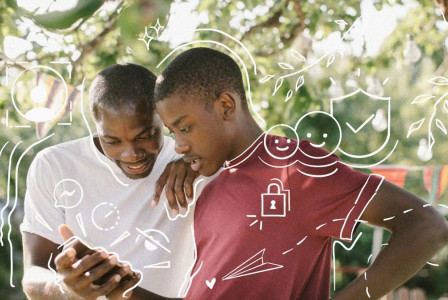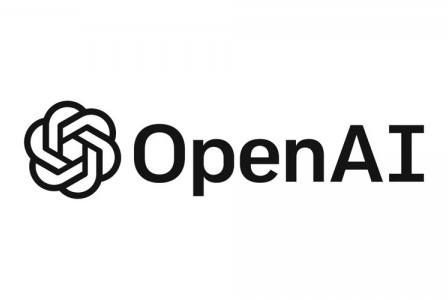SEARCH
The digital dangers of using AI to create action figures and Ghibli characters

SHARE IT
In the last few days a new trend has taken over the internet: These are anime-style images inspired by Studio Ghibli and action figures created with the help of Artificial Intelligence (AI) tools, such as OpenAI's "Images for ChatGPT". Before you get caught up in the trend, it's important to be aware of the security and privacy risks associated with sharing personal photos on AI-powered platforms and apps. Below, Kaspersky lists recommendations for protecting your personal data.
These trends are mainly based on users posting photos - usually selfies - on AI platforms, which turn them into portraits of a certain style. Inspired by the iconic aesthetics of Studio Ghibli's dreamlike images or the bold features of action figures, these tools use generative AI models to draw users as fictional characters or heroes. The user typically uploads a simple photo of themselves, selects the visual style they want, and the AI then creates a new, fully personalized image. The final results are often shared en masse on social media, with hashtags such as #AIart, #GhibliStyle or #AIactionfigure becoming popular on platforms such as Instagram and TikTok. In fact, according to Kaspersky's latest report, 44% of respondents said that when they play mini-games or take recreational tests, they post their results on social media - sometimes including photos related to the trend in question.
The results of these tools can be visually impressive, but their ease of use often distracts from the underlying cybersecurity threats. When users upload selfies or photos to AI platforms to create images, they may unknowingly give consent for the platform to retain and reuse their images. Each uploaded image becomes data - data that can be stored, analyzed and potentially exploited maliciously if the platform does not adhere to strong security protocols. These images can be used to further train AI models or even be included in public datasets, potentially exposing individuals to facial recognition systems, doxxing or deepfake technologies. And as many of these services rely on cloud infrastructure or third-party APIs, it's not always clear where your information ends up - or who has access to it.
"It's very easy to get carried away in the excitement of turning yourself into an AI-generated character - but it's worth thinking for a moment before uploading your photo to an AI service," says Anna Larkina, a privacy expert at Kaspersky. "Every image shared can turn into a tool in someone else's hands. Fraudsters can reuse personal photos to impersonate your identity, spoof your contacts or create convincing phishing messages. Something that looks like innocent online fun can quickly turn into a threat to your security if your data falls into the wrong hands."
To stay safe, Kaspersky recommends:
- Read the privacy terms: Many of these AI services operate under vague or overly general terms of use. Users should carefully review privacy policies and licenses to understand how their data will be stored, shared, or commercially exploited. Pay particular attention to whether your data can be sold to third parties or retained indefinitely.
- Beware of fake platforms and malware: The popularity of these trends often leads to the creation of malicious fake apps or phishing websites promising "hyper-realistic Ghibli art with AI". These platforms may be aimed at stealing personal data, collecting photos or infecting devices with malware. Opt for trusted platforms with verified security credentials.
- Beware of identity leakage: Posting pictures with details in the background - such as your home, workplace or location - can inadvertently reveal personal information. When these details are combined with facial data, the risk of identity theft, impersonation or social engineering attacks increases significantly. Moreover, according to Kaspersky data, up to 43% of people already believe that in the near future it will be possible to create digital copies of people so realistic that they can impersonate them without anyone noticing.
- Think long-term: Your digital footprint is preserved forever. AI-generated images may seem ephemeral - made for a trend, for fun, or for a profile photo - but each one adds to your permanent digital footprint. Once uploaded and shared, these images can be stored, shared or collected by third parties and thus remain online indefinitely. According to Kaspersky's most recent findings, 52% of users believe that personal data remains visible online even after death, while 61% fear that the identities of the deceased are particularly vulnerable to identity theft.
- Use reliable security solutions: To protect your devices from malware and other cyber threats, install a comprehensive security solution.
MORE NEWS FOR YOU

 Help & Support
Help & Support 

